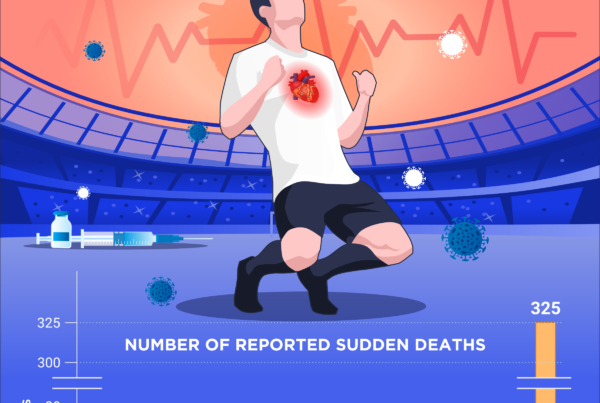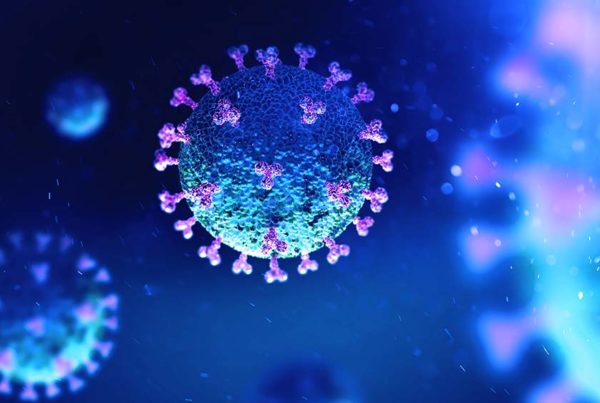
The answer to the age-old question about why we age is long-known — we rust. The right natural ingredients to moderate oxidative stress can positively influence that key cause of aging. And the right shopping list can help slow the process, along with appropriate calorie management.
Imagine if fall foliage changed color overnight. Or if the sunset took only two seconds. If things happened this quickly, these and other pleasures of life would pass by too fast. Yes, that can also be said for human aging.
As children, we can’t wait to get older. But then we do, and sometimes people find themselves missing some aspects of their younger self, like their physical capabilities or features of their appearance.
Those of us no longer in youth know it well. We live it every day, and feel the differences in our bodies over time. Most of us have experienced first-hand the spectrum of good health and poor health. Unfortunately, most people consider aging a set-in-stone genetic dictation. However, we really can influence the effects of aging, its ebb and flow, and the damage done. We can literally slow its progression.
We all know people who, in many ways, seem younger than their age. Along with better health, they are more fit because their bodies behave like that of someone younger. Chronological age is what’s measured in years, but physiological age is the true measure of time on the body. Likewise, for those who appear much older than their age; the body has undergone more wear and tear. These are measures of physiological aging.
Rust never sleeps
A process called oxidative stress rusts our bodies and brains, affecting age and especially quality of life. Oxidative stress is the real reason we age.
Scientists and clinicians recognize the importance of lifestyle stress on overall health and fitness, and therefore aging. Avoiding tobacco, and no or lower alcohol intake are two of them. Food and physical activity are the other pair, and can influence aging significantly, through the bodywide process of oxidative stress.
We can age faster and poorly, or tame it, by controlling oxidative stress. Food plays a significant role, starting with the first bite, by profoundly influencing metabolism. A variety of nutrients in the foods we eat can do this.
The food factor
The easiest and simplest recommendations are those most likely to be followed. So in this case, let’s just focus on a single aspect of food — the one most influential in promoting oxidative stress. This would be junk food. In short, the foods to avoid are all sugar and other refined carbohydrates.
Throughout the world today, most carbohydrates consumed are refined/processed, even those claiming to be whole-grain, natural or wholesome — they usually are not. Even too much natural carbohydrate foods can be harmful for those whose metabolism is unable to process them properly. This includes those who are older, have problems associated with blood-sugar, and who have excess body fat. These individuals are more carbohydrate-intolerant (e.g., insulin resistant). For them, more of the carbohydrates consumed quickly convert to stored fat. Just as bad, these carbs block ability to burn off existing fat stores, with hunger and fatigue being common symptoms.
A simple and accurate measure of body fat is the waist-to-height. In short, your waist measured at the level of the belly button should be less than half your height.
When we eliminate all refined carbohydrates — all junk food — we obviously need to add natural foods to maintain or restore our healthy nutrient status. These natural foods should include healthy fats and proteins, and non-starch plant foods, which provide more micro- and phytonutrients that specifically control oxidative stress.
As I have discussed these various nutrients previously, the important question for this article is, which foods contain the headliners that influence aging the most. There are two caveats: first, obviously if you don’t tolerate some of these foods, avoid them. The second is to buy certified organic foods (unless you know that the source is as good or beyond organic), because they contain more of the key nutrients that help control oxidative stress, compared to conventional foods.
Here are some of the healthy items to start your shopping list:
- Whole raw (unpasteurized) almonds, coffee, green or black tea, raw cacao, dry red wine (small amounts).
- Meat (pork, beef), whole eggs, tomato, onion, broccoli, spinach, blueberries, citrus peel (cumquats, small citrus), and fat such as extra-virgin olive and coconut oils.
To be clear, this includes natural fats from healthy animals, including butter and heavy cream; however, omega-6 oils, peanut, soy, safflower, canola, and others, should be avoided.
Of course, there are other natural foods that are also healthy to eat. Natural fats are particularly important for the brain, which, if fed right, potentially can be the slowest-aging feature of the body. The brain is 60+ percent fat, and we don’t want to force bad fats into it — garbage in, garbage out. So, add EPA-DHA from fish oil to the shopping list.
In addition, add whole, raw sesame seeds and walnuts, strawberries, other non-starch vegetables, cheese, and a wide range of herbs/spices, especially ginger and turmeric.
It’s best to focus on the healthier foods you enjoy most. Unfortunately, many people’s tastebuds are not acclimated to natural foods due to a history of eating unnatural products, even moderate amounts of sugar and refined carbohydrates. Once junk foods are eliminated, you’ll begin to recognize and enjoy the taste of natural food again.
The keto factor
With only natural healthy foods to consume, one would ask what kind of diet that would be?
It’s not a diet in the popular sense of the term, but how our earliest ancestors ate: higher fat, moderate protein, low carbohydrate. At least until a few thousand years ago, when the natural food revolt, i.e., the agricultural revolution, led to earth’s first junk foods.
One could say that, today, to reduce excess oxidative stress, we must revolt against junk food, the most popular cuisine on earth. For many people this also means a reduction in calories consumed but this does not mean starving ourselves or fasting.
As carbohydrate intake is reduced to very low levels, the body produces more ketone bodies and enters a state of nutritional ketosis. This can quickly lead to profound healthy metabolic changes, including hormonal benefits. In short, ketosis comes with the benefits of caloric restriction, but without the malnutrition and metabolic slowdown associated with low-calorie diets, and is another reason it has such a significant impact on aging. Ketones can also improve mitochondrial size and function, while providing us with more energy, and, because of their antioxidant action, also help control oxidative stress.
So add unrefined coconut oil to the shopping list — as a healthy natural fat, when consumed without sugar and other refined carbohydrates, it can give ketone production a bit of a kick.
Exercise matters
While healthy foods significantly moderate aging, exercise helps too. However, refined carbs reduce fat-burning — so despite burning calories during a workout, if we eat poorly we burn much less fat calories, plus lose an opportunity to reduce body fat stores.
Exercise that is particularly compatible with aging can play a role as well.
While aging typically impairs fitness through reduced muscle mass and function, insulin resistance, hormone imbalance, and energy deficits, healthy exercise can help counter these effects.
First, easy, aerobic workouts can increase fat-burning, improve immune function, reduce systemic stress, and provide other benefits. However, high-intensity training can increase oxidative stress, reduce fat-burning and immunity, and require much longer periods of rest and recovery. Competitive athletes can still perform well as proper aerobic training can significantly increase one’s running or cycling pace, for example, at the same heart rate. Once a high level of aerobic fitness is developed, high-intensity training can safely be employed.
Average aging is not acceptable to those who demand a longer, higher quality of life. We want to go beyond that. While traditional food and exercise recommendations clearly promote unkind aging changes, we can counter these with a truly healthy lifestyle.
Reference
Miller VJ, et al. Nutritional Ketosis and Mitohormesis: Potential Implications for Mitochondrial Function and Human Health. J Nutr Metab. 2018. doi.org/10.1155/2018/5157645.








